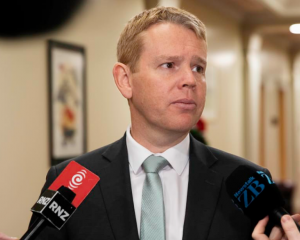
Public attitudes lie along a spectrum, from those who would want far stricter measures to proponents of going soft and soon.
Everyone in both directions could well feel some disappointment.
That is the nature of such policy.
That is what has occurred regularly since that fateful time almost exactly two years ago when New Zealand went into its first prolonged lockdown.
Decisions, too, must confront the variety of ways people understand and respond to what has been said.
Several experts have been concerned that the loosening of rules will send a message for many to slacken off too much.
Others, though, will continue to play it safe whatever the changes in the rules.
Many a business laments the "voluntary" lockdown from potential customers over the past few months in the Red traffic light setting.
Large slices of the public, particularly the older and the vulnerable, will continue to be guarded.
Inevitably, the messages from Ms Ardern were mixed. She said, for example, "we want to encourage events", while also offering various cautions.
Once again, there can and should be quibbles on the speed of some changes and over other matters.
There have been major failings in the likes of slow vaccine procurement, MIQ, immigration and lack of ICU preparedness.
How ironic, too, that Ms Ardern yesterday emphasised that "masks matter" when she and the Ministry of Health resisted their compulsory introduction for several months in 2020 despite the urging from Michael Baker, the University of Otago, Wellington, epidemiologist.
The story of ministry resistance to rapid antigen testing and sluggard purchasing was worse.
Broadly, nevertheless, the direction of travel and the big decisions have been sensible.
This includes the vaccine mandates.
They were, indeed, cruel in their impact.
But the vital high vaccination rates could not have been achieved without serious arm twisting.
Those high levels can, in all probability, be credited with saving hundreds of lives, both directly through Covid and because of the medical resources which would have been diverted from other care.
Evidence from different parts of the United States and our lagging booster rates make clear percentages would have been much lower if not for what almost amounted to compulsion.
Such drastic steps had to be halted as a government edict as soon as possible for most settings.
April 5, when that occurs, is not far away.
One must wonder how much political pressure has hurried Labour along on this matter, despite protestations to the contrary.
While scanning will be largely gone earlier, many of the public had already voted with their phones.
Once contact tracing was overwhelmed and dropped for supermarkets and retail, people realised their scanning had little point.
Ms Ardern treated the first 10 minutes of her announcement yesterday as a party-political broadcast, the propaganda before reaching the substance.
But, while it is always claimed policy is led by health advice, how much was led by political expediency itself and what was palatable to the majority of New Zealanders?
There is always the proviso that changed circumstances could lead to any plans being upended.
Prof Michael Baker yesterday said some of the changes were coming too soon given Omicron’s current spread.
Dr Siouxie Wiles, from the University of Auckland, said she was "immensely disappointed" by the mandate changes because of their effect on the vulnerable.
The politicians, however, have the wider picture and are accountable.
It is up to the Government to, again and again, perform the tricky balancing act between competing rights, requirements and needs.










